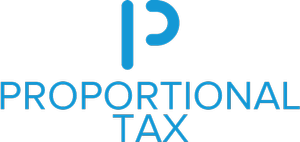Personal income tax is a taxation charged on a person’s income by a government. Simply put, the personal income tax consists of a person s annual income and also includes capital gains tax which is charged on the increase in value of the person s assets during a year. Other taxes and fees include property tax and payroll tax. Hence, in order to calculate the personal income tax you need to understand and appreciate the meaning of your personal income tax. The personal income tax calculated is dependent on two things that are personal assets and salary or wages paid to the employee.
A person earning his income from the services of a company may be liable for corporate income taxes and the personal income tax applicable on that income by that company might also be levied. Hence, a company’s director also needs to pay a portion of the personal income tax to the government which might be deducted or added to the corporate income taxes. A person who has an offshore company that employs him might be liable to levy a part of his personal income tax. If he has provided goods for the company, then that income is also liable to the company. Similarly, if he has an inherit wealth which is not taxable, then the inheritance tax is not imposed on him.
There are many types of personal income tax deductions available to a taxpayer. One of the most common tax deductions is the home mortgage interest. This is applicable only when a taxpayer earns income by the use of his home as collateral or guarantee to obtain a mortgage. In this case, his home is deemed to be his collateral. Also if a homeowner grants to a disabled person that he could occupy the house or any other real estate owned by him, then the tax deduction is allowed.
There are many corporate tax benefits also available to a corporate citizen earning his income through salary or employment. A corporate citizen who earns more than a prescribed limit for the corporate tax bracket can have his income exempt from the corporate tax. There are many categories under which the corporate tax rate can be levied on the corporate citizen. Some of them are:
A personal income tax deduction may be allowed to a self-employed person who has been working in a place of business for a certain number of years. The prescribed limit for the corporate tax rate is five thousand dollars. In order to qualify for the corporate tax deduction, the taxpayer should have proof that he has been self-employed. Also, if the corporate taxes have already been waived by the government, then the individual taxpayer pays nothing at all. These tax payments are called installment payments.
The federal income tax rate is the rate applied by the Internal Revenue Service to the personal income tax. There are several reasons why a person might want to lower his/her federal income tax. Most commonly, people do not want to pay taxes unless there is an option to do so. For example, if a person is married and has two children, then he/she might choose to take the highest rate among married people.
If you have more than one vehicle for yourself, you might be able to deduct your vehicle expenses on your federal income tax return. This includes road service, gasoline, oil changes and repairs, etc. If you have other expenses, say for a golf vacation, in your home state, then you can claim those as well. There are also some deductions that apply to dependent children and dependents.
The progressive income tax system has some similarities with the personal income tax system. They both entail filing a tax return. The difference usually arises when credits or deductions are involved. For instance, in the case of the progressive income tax system, there are no personal income tax credits for the parents of dependent children. Because of this, their income is not included in the calculation of their taxable income. In this case, the higher tax rate applied to the parents’ and dependent children’s incomes results.
